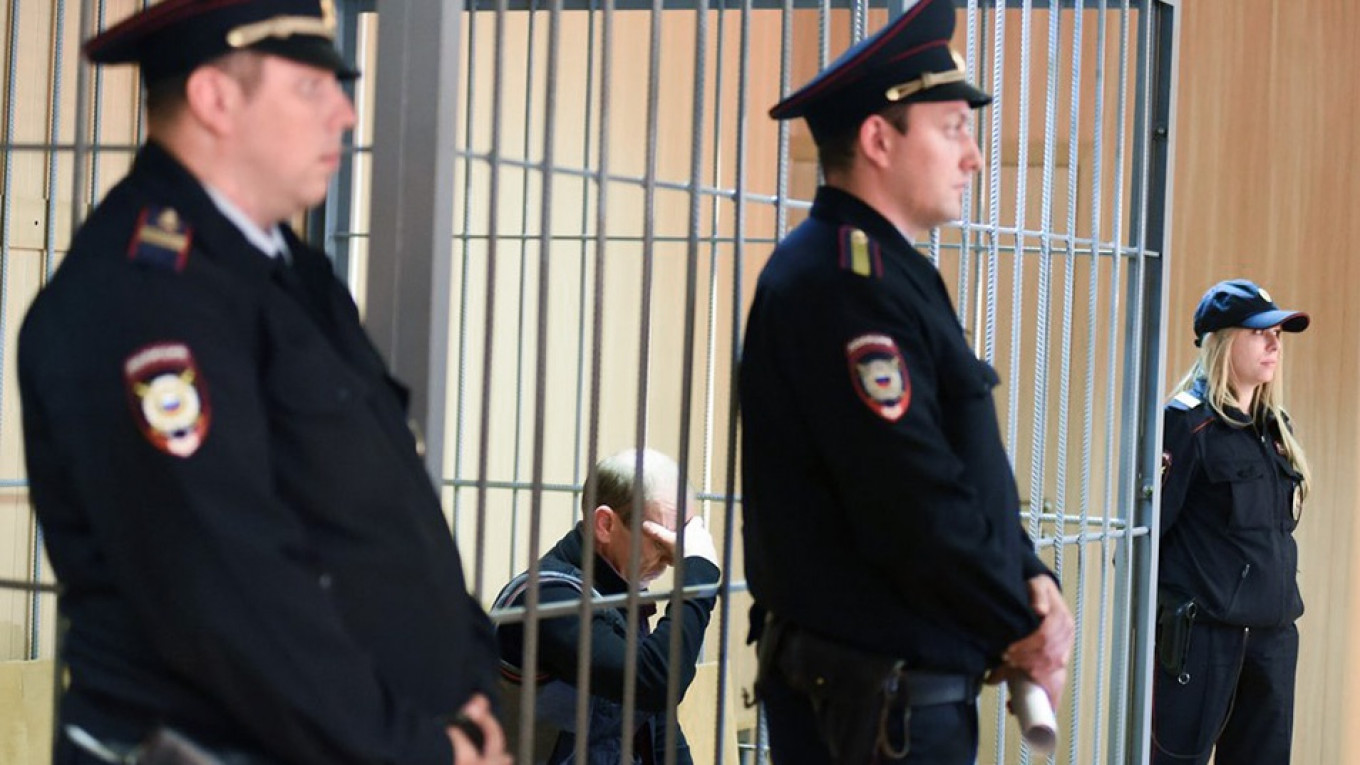Russian prison officials say the courts have increasingly chosen house arrest as a go-to preventive measure in recent years.
The Federal Prison Service (FSIN) has come under increased criticism in the past year over allegations of torture and corruption.
“Over the past five years, the number of [people under house arrest] has increased by more than four times,” FSIN spokeswoman Kristina Panshina told Interfax on Monday.
Between 2013 and 2018, the number of people under house arrest has grown from 5,000 to 22,000, or by up to 20 percent every year, Panshina said.
“This is primarily done to reduce the number of suspects and defendants held in remand prisons,” she was quoted as saying.
According to the state-run TASS news agency, house arrest – usually assigned for minor crimes – is one of seven preventive measures the authorities use as an alternative to pre-trial detention.
Panshina said the use of electronic monitoring devices has also gone up since 2013, having been applied to more than 60,000 suspects and defendants in that time, including prominent anti-Kremlin critic Alexei Navalny.
A Message from The Moscow Times:
Dear readers,
We are facing unprecedented challenges. Russia's Prosecutor General's Office has designated The Moscow Times as an "undesirable" organization, criminalizing our work and putting our staff at risk of prosecution. This follows our earlier unjust labeling as a "foreign agent."
These actions are direct attempts to silence independent journalism in Russia. The authorities claim our work "discredits the decisions of the Russian leadership." We see things differently: we strive to provide accurate, unbiased reporting on Russia.
We, the journalists of The Moscow Times, refuse to be silenced. But to continue our work, we need your help.
Your support, no matter how small, makes a world of difference. If you can, please support us monthly starting from just $2. It's quick to set up, and every contribution makes a significant impact.
By supporting The Moscow Times, you're defending open, independent journalism in the face of repression. Thank you for standing with us.
Remind me later.






